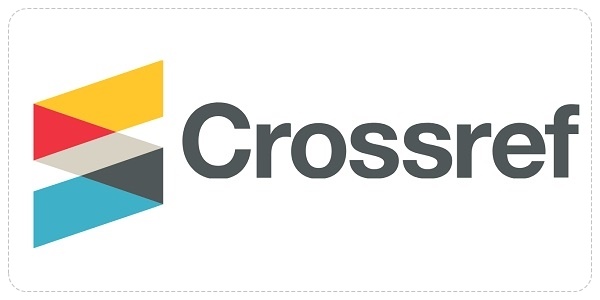Implementation of the RQA Learning Model Assisted by Electronic Student Worksheets in an Effort to Improve Students' Critical Thinking Skills in the Reproductive System Material
Abstract
This study aims to test the effectiveness of the implementation of the RQA (Reading, Questioning, and Answering) learning model assisted by interactive E-LKPD in improving students' critical thinking skills in the reproductive system material. The research method used is a quantitative method with a research approach in the form of surveys and observations. The research sample consisted of 2 classes selected using purposive sampling techniques, namely class XI MIPA 4 and XI MIPA 5. The data collection instrument was a critical thinking ability test given before and after treatment. The results of the study proved that the learning activities of students in the experimental class increased with the percentage of learning activities in general reaching 85%, 79%, and 88% at the first, second, and third meetings. In addition, there was a significant difference in critical thinking skills between the experimental class (average N-gain 95%) and the control class (average N-gain 39%), which was supported by the results of the hypothesis test with a significance value of 0.000 (<0.050). Student responses to the implementation of the RQA learning model also showed positive results, where most students (79%) gave positive responses. Thus, it can be concluded that the RQA learning model assisted by interactive E-LKPD is effective in improving students' critical thinking skills.
Keywords
Full Text:
PDFReferences
Aston, K. J. (2024). ‘Why is this hard, to have critical thinking?’Exploring the factors affecting critical thinking with international higher education students. Active Learning in Higher Education, 25(3), 537-550. https://doi.org/10.1177/14697874231168341
Awe, E. Y., & Ende, M. I. (2019). Pengembangan lembar kerja siswa elektronik bermuatan multimedia untuk meningkatkan kemampuan kognitif siswa pada tema daerah tempat tinggalku pada siswa kelas IV SDI Rutosoro di Kabupaten Ngada. Jurnal DIDIKA, 5(2), 48-61. https://doi.org/10.29408/didika.v5i2.1782
Cai, Z., Mao, P., Wang, D., He, J., Chen, X., & Fan, X. (2022). Effects of scaffolding in digital game-based learning on student’s achievement: A three-level meta-analysis. Educational Psychology Review, 34(2), 537-574. https://doi.org/10.1007/s10648-021-09655-0
Callan, G. L., & Cleary, T. J. (2019). Examining cyclical phase relations and predictive influences of self-regulated learning processes on mathematics task performance. Metacognition and Learning, 14(1), 43-63. https://doi.org/10.1007/s11409-019-09191-x
Callan, G. L., Rubenstein, L. D., Ridgley, L. M., Speirs Neumeister, K., & Hernández Finch, M. E. (2021). Self-regulated learning as a cyclical process and predictor of creative problem-solving. Educational Psychology, 41(9), 1139-1159. • https://doi.org/10.1080/01443410.2021.1913575
Chen, M. F., Chen, Y. C., Zuo, P. Y., & Hou, H. T. (2023). Design and evaluation of a remote synchronous gamified mathematics teaching activity that integrates multi-representational scaffolding and a mind tool for gamified learning. Education and Information Technologies, 28(10), 13207-13233. https://doi.org/10.1007/s10639-023-11708-6
Choirunisa’, N., Maghfiroh, H., Hayuana, W., Fahmi, M. I. N., Agustin, M., Buroidah, H., ... & Zubaidah, S. (2024, May). The effect of reading questioning answering (RQA) on metacognitive skills of biology students. In AIP Conference Proceedings (Vol. 3106, No. 1, p. 030038). AIP Publishing LLC. https://doi.org/10.1063/5.0215200
Darwin, Rusdin, D., Mukminatien, N., Suryati, N., Laksmi, E. D., & Marzuki. (2024). Critical thinking in the AI era: An exploration of EFL students’ perceptions, benefits, and limitations. Cogent Education, 11(1), 2290342. https://doi.org/10.1080/2331186X.2023.2290342
Dobber, M., Zwart, R., Tanis, M., & van Oers, B. (2017). Literature review: The role of the teacher in inquiry-based education. Educational research review, 22, 194-214. https://doi.org/10.1016/j.edurev.2017.09.002
Fauzan, F., Ansori, R. A. M., Dannur, M., Pratama, A., & Hairit, A. (2023). The implementation of the merdeka curriculum (independent curriculum) in strengthening students’ character in Indonesia. Aqlamuna: Journal of Educational Studies, 1(1), 136-155. https://doi.org/10.58223/aqlamuna.v1i1.237
Hikamah, S. R., & Maghfiroh, N. H. (2024). Discovery Learning Model Integrated RQA to Improve Critical Thinking Skills, Metacognitive Skills and Problem-Solving Through Science Material for Junior High School Students. Pegem Journal of Education and Instruction, 14(4), 287-294. https://doi.org/10.47750/pegegog.14.04.25
Hitchcock, D. (2017). Critical thinking as an educational ideal. In On reasoning and argument: Essays in informal logic and on critical thinking (pp. 477-497). Cham: Springer International Publishing. https://doi.org/10.1007/978-3-319-53562-3_30
Imakulata, M. M., Santrum, M. J., Dama, W. V., Bangngu, N. C., Wiltin, G. F., & Tukan, E. S. (2024). Empowering scientific literacy skills through an integrated SSCS learning model with RQA strategies. Biosfer: Jurnal Pendidikan Biologi, 17(2), 540-549. https://doi.org/10.21009/biosferjpb.47844
Johan, R. C., Rullyana, G., & Ardiansah, A. (2022). Hyper content e-module in information behavior course with the assistant of screencast. Journal of Education and Learning (EduLearn), 16(2), 210-218. https://doi.org/10.11591/edulearn.v16i2.20339
Johan, R. C., Sutisna, M. R., Rullyana, G., & Ardiansah, A. (2020). Developing online learning communities. In Borderless Education as a Challenge in the 5.0 Society (pp. 145-153). Routledge. https://doi.org/10.1201/9781003107279
Leasa, M., Abednego, A., & Batlolona, J. R. (2023). Problem-based learning (PBL) with reading questioning and answering (RQA) of preservice elementary school teachers. International Journal of Learning, Teaching and Educational Research, 22(6), 245-261. https://doi.org/10.26803/ijlter.22.6.14
Leasa, M., Rengkuan, M., & Batlolona, J. R. (2024). PBLRQA Model to the Development of Metacognitive Awareness in Pre-Service Teachers. Journal of Education and Learning (EduLearn), 18(1), 55-62. https://doi.org/10.11591/edulearn.v18i1.20977
Lima, V. V. (2017). Constructivist spiral: an active learning methodology. Interface-Comunicação, Saúde, Educação, 21, 421-434. https://doi.org/10.1590/1807-57622016.0316
Limbong, E. E. S., Pasaribu, S. D., Tampubolon, Y. B. S., & Lubis, R. H. (2024). The relevance of the independent learning curriculum to the 21st century learning model in development of society era 5.0. EDUCTUM: Journal Research, 3(3), 100-106. https://doi.org/10.56495/ejr.v3i3.606
Manyukhina, Y., & Wyse, D. (2019). Learner agency and the curriculum: A critical realist perspective. The Curriculum Journal, 30(3), 223-243. https://doi.org/10.1080/09585176.2019.1599973
Meng, Q., Jia, J., & Zhang, Z. (2020). A framework of smart pedagogy based on the facilitating of high order thinking skills. Interactive Technology and Smart Education, 17(3), 251-266. https://doi.org/10.1108/ITSE-11-2019-0076
Misqa, L., Oviana, W., Hayati, Z., & Jannah, M. (2024). Improving Student Learning Outcomes in Mathematics Learning through a Contextual Teaching and Learning Approach in Elementary Schools. Journal of Indonesian Primary School, 1(2), 19-26. https://doi.org/10.62945/jips.v1i2.34
Mulnix, J. W. (2012). Thinking critically about critical thinking. Educational Philosophy and theory, 44(5), 464-479. https://doi.org/10.1111/j.1469-5812.2010.00673.x
Nasrudin, H., & Azizah, U. (2019, December). Reading, Questioning, and Answering (RQA) strategies’: An alternative to empowering undergraduate student thinking abilities. In National Seminar on Chemistry 2019 (SNK-19) (pp. 201-205). Atlantis Press. https://doi.org/10.2991/snk-19.2019.32
Nicholas, M., Veresov, N., & Clark, J. C. (2021). Guided reading–Working within a child's zone of proximal development. Learning, Culture and Social Interaction, 30, 100530. https://doi.org/10.1016/j.lcsi.2021.100530
Patel, N. S., Puah, S., & Kok, X. F. K. (2024, June). Shaping future-ready graduates with mindset shifts: studying the impact of integrating critical and design thinking in design innovation education. In Frontiers in Education (Vol. 9, p. 1358431). Frontiers Media SA. https://doi.org/10.3389/feduc.2024.1358431
Rahmayani, R. D., & Indriyani, V. (2024). Analysis of the need for interactive E-LKPD assisted by the live-worksheets platform to enhance student engagement in reading and viewing learning. International Journal of Language Pedagogy, 4(2), 150-163. https://doi.org/10.24036//ijolp.v4i1.84
Raj, T., Chauhan, P., Mehrotra, R., & Sharma, M. (2022). Importance of critical thinking in the education. World Journal of English Language, 12(3), 126-133. https://doi.org/10.5430/wjel.v12n3p126
Rob, M., & Rob, F. (2018). Dilemma between constructivism and constructionism: Leading to the development of a teaching-learning framework for student engagement and learning. Journal of international education in business, 11(2), 273-290. https://doi.org/10.1108/JIEB-01-2018-0002
Safitri, R. D., Afifi, E. H. N., & Shaharani, A. (2024). The Effect of Reading, Questioning, and Answering (RQA) Learning Model on Students' Critical Thinking Ability in Science Material at SD Negeri 15 Sorong City. Journal of Asian Primary Education (JoAPE), 1(2), 121-127. https://doi.org/10.59966/joape.v1i2.1467
Saputri, W., & Corebima, A. D. (2020). Question types of pre-service teachers at the implementation of a new learning model: a comparison between QASEE, RQA, and conventional learnings. Journal for the Education of Gifted Young Scientists, 8(2), 843-856. https://doi.org/10.17478/jegys.647916
Saritepeci, M., & Yildiz Durak, H. (2024). Effectiveness of artificial intelligence integration in design-based learning on design thinking mindset, creative and reflective thinking skills: An experimental study. Education and Information Technologies, 29(18), 25175-25209. https://doi.org/10.1007/s10639-024-12829-2
Schramm, J. W., Jin, H., Keeling, E. G., Johnson, M., & Shin, H. J. (2018). Improved student reasoning about carbon-transforming processes through inquiry-based learning activities derived from an empirically validated learning progression. Research in Science Education, 48(5), 887-911. https://doi.org/10.1007/s11165-016-9584-0
Sok, S., & Heng, K. (2024). Opportunities, challenges, and strategies for using ChatGPT in higher education: A literature review. Journal of Digital Educational Technology, 4(1), ep2401. https://doi.org/10.30935/jdet/14027
Syafrin, Y., Kamal, M., Arifmiboy, A., & Husni, A. (2023). Pelaksanaan pembelajaran pendidikan Agama Islam. Educativo: Jurnal Pendidikan, 2(1), 72-77. https://doi.org/https://doi.org/10.56248/educativo.v2i1.111
Tangge, L., & Rede, A. (2018, February). Influence of RQA learning model toward student concepts understanding and retention at SMA 2 Kasimbar. In First Indonesian Communication Forum of Teacher Training and Education Faculty Leaders International Conference on Education 2017 (ICE 2017) (pp. 500-503). Atlantis Press. https://doi.org/10.2991/ice-17.2018.107
Tendrita, M., Azzajjad, M. F., & Ahmar, D. S. (2022). Mind mapping with problem-posing: Can it affect student’s problem-solving skills in Schoology-based learning?. JPBI (Jurnal Pendidikan Biologi Indonesia), 8(1), 86-94. https://doi.org/10.22219/jpbi.v8i1.18565
Wilson, N. S., & Smetana, L. (2011). Questioning as thinking: A metacognitive framework to improve comprehension of expository text. Literacy, 45(2), 84-90. https://doi.org/10.1111/j.1741-4369.2011.00584.x
DOI: https://doi.org/10.17509/pdgia.v23i2.86789
Refbacks
- There are currently no refbacks.
INDEXED BY

This work is licensed under a Creative Commons Attribution-ShareAlike 4.0 International License















